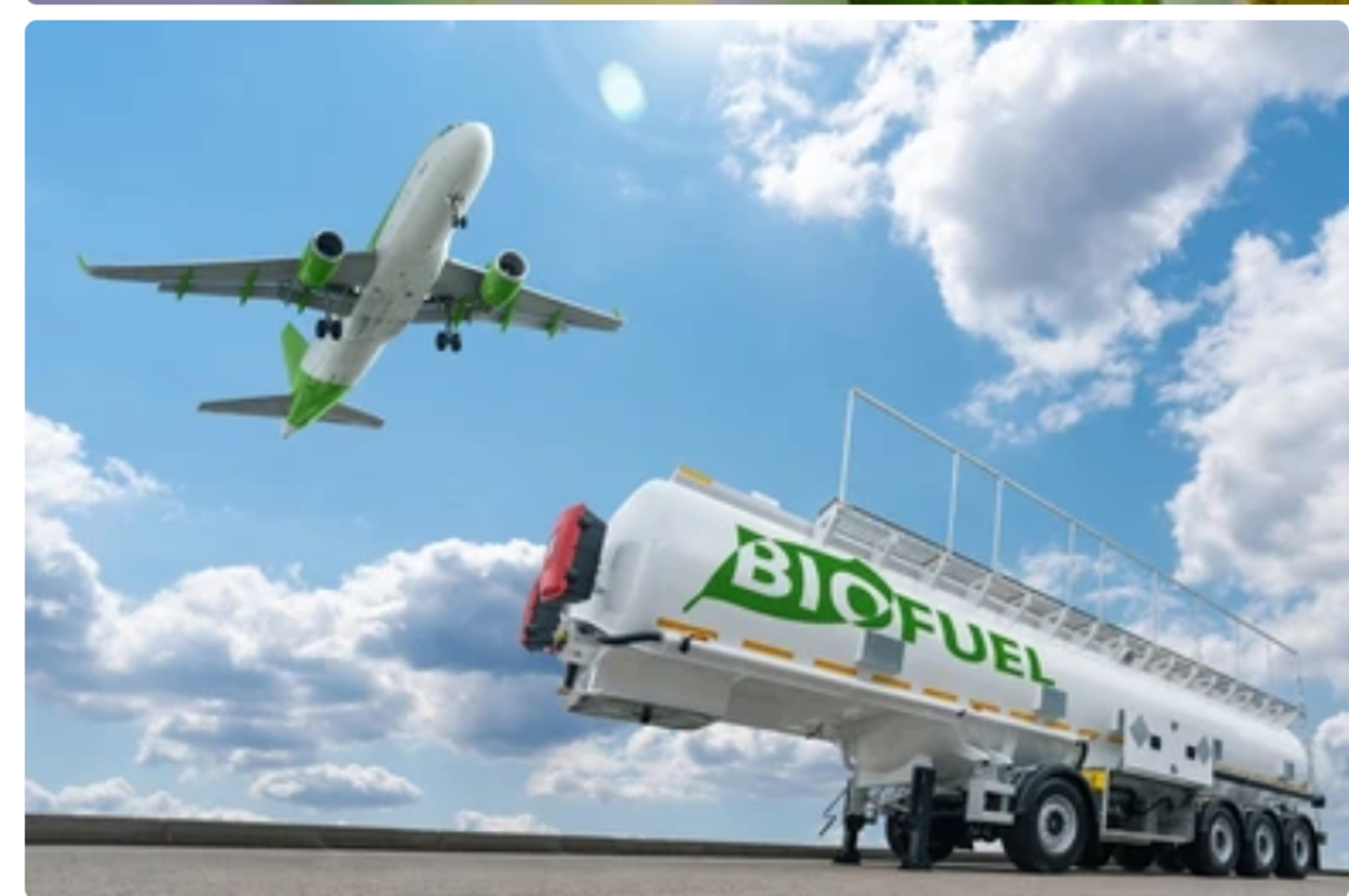As Pinwheel has curated its project portfolio on behalf of our clients we have taken a methodical approach, focusing on project types are most likely to have impact for the planet. However, sometimes a client will suggest that we investigate an area for addition to the portfolio. We have recently had two clients ask us if our project portfolios could include activities that support the development of sustainable aviation fuels (SAFs), with the intention of supporting the decarbonisation of air travel.
Our response was to say that we don’t think so, as we have concerns that sustainable aviation fuels, if scaled, would be damaging for the planet and that any funding might not be additional – that is, it wouldn’t lead to more deployment of SAFs. However, we totally understand the logic of the request, because for many businesses, particularly service businesses, aviation makes up a significant proportion of their emissions. If there is a way for corporates to directly reduce the carbon impact of flying then it would have real appeal, so we decided to do a deep dive on SAFs.
First, we sought out some expert advice. The arguments that follow are mine, but I am indebted to the brilliant transport decarbonisation experts who gave me their time – Alethea Warrington at the climate campaign Possible, and Rachel Solomon Williams, the incoming Executive Director, at the Aldersgate Group.
The challenge of aviation decarbonisation is possibly the hardest we face. Genuinely emissions-free planes are decades away from commercial implementation, even on short-haul routes. Its not merely a question of funding or will, it is also a matter of physics that we have not yet cracked. In the long run, a mixture of green hydrogen, electric planes and efuels are likely to be a solution for low carbon flight, albeit with huge implications for electricity demand that may be insurmountable, but until then the sector has been looking for interim measures to lower the carbon intensity. That’s where SAFs come in.
It is increasingly clear that SAFs, already being deployed, will be an increasing part of the aviation fuel mix in coming years. Airlines are already purchasing SAFs, albeit in relatively small volumes, and governments around the world are basing their net zero plans and putting in place regulation to drive up deployment.
Some corporates have started investing in the deployment of SAFs to send a market signal that SAFs are in demand, ahead of regulation making it compulsory. Our view is that this isn’t the best use of funds, as there are a range of options for funding climate work that have clear additionality, whereas the airlines need to deploy SAFs and regulatory action mean it is likely that SAF deployment will happen anyway. There is a high chance that corporate money will have no impact.
The bigger problem is that SAFs are likely to be harmful, rather than a useful climate solution. Small amounts of SAF may be sourced from waste products and be net climate positive, but once you require SAFs at scale (and aviation isn’t the only sector looking to SAFs – shipping is, too), it can do significant climate and ecological damage. Science Direct has said the following:
“The scaling up of SAF to not only maintain but grow global aviation is problematic as it competes for land needed for nature-based carbon removal, clean energy that could more effectively decarbonise other sectors, and captured CO2 to be stored permanently. As such, SAF production undermines global goals of limiting warming to 1.5 °C.”
There simply isn’t enough waste product to meet our aviation needs. The Royal Society estimates that the UK’s entire used cooking oil supply would supply less than 1% of jet fuel demand. The scale of the land use problem is enormous and has potentially disastrous implications for nature and food production. Using biomass to supply the UK’s current jet fuel demand would require more than half of the total agricultural land. Others have suggested using waste plastics or waste Co2, but doing so will create new income streams and increase the viability of the very activities we need to do much less of. In short, if we try to scale SAFs we’re highly likely to be making the climate and biodiversity crises worse. Companies should steer clear of creating additional demand for SAFs.

There has been more optimism around efuels. These may play a limited role, but there are some significant caveats. The additionality problem rears its head again, here. It is not clear where corporate funding for efuels could add value. Where there may be an opportunity, for example to provide early funding to a promising efuel start up, the likely funding requirement will be many millions of pounds/dollars – making it prohibitive as a beyond value chain climate solution.
Efuels are also unlikely to be zero carbon and will compete for what may be scarce renewable electricity resources, as well as being enormously expensive. The non-carbon warming effects mean that climate impact reduction potential from efuels is only 30%-60%, rather than 100%. It will therefore not be possible for efuels to provide more than a small fraction of current kerosene demand over the next few decades. In the long run, they have potential, but we should not expect them to play a significant role in reaching net zero by 2050.
So if not SAFs, what activities should companies be investing as they decarbonise their business and supply chains? We recommend that companies fund a broad portfolio of projects covering a range of carbon removal projects (both novel, long-term sequestration projects and nature-based ones with shorter duration storage), biodiversity restoration and waste projects. Companies should do this on a contribution basis. That is, they should seek to invest in the highest impact climate and biodiversity projects available (like those Pinwheel offers to its clients) but not seek compensate or to count these off against their own emissions. There is also a strong case for funding policy campaigning work, potentially including campaigns that work towards the decarbonisation of travel. But when it comes to decarbonising your own/your company’s travel, there really is no substitute for radically reducing your demand for flights.
If your company is interested in partnering with Pinwheel for to deploy a best practice climate and biodiversity project portfolio get in touch with us at contact@pinwheel.co.uk











